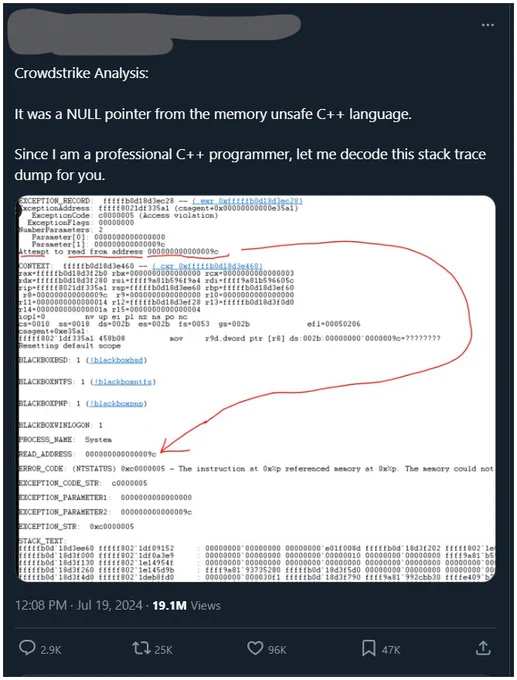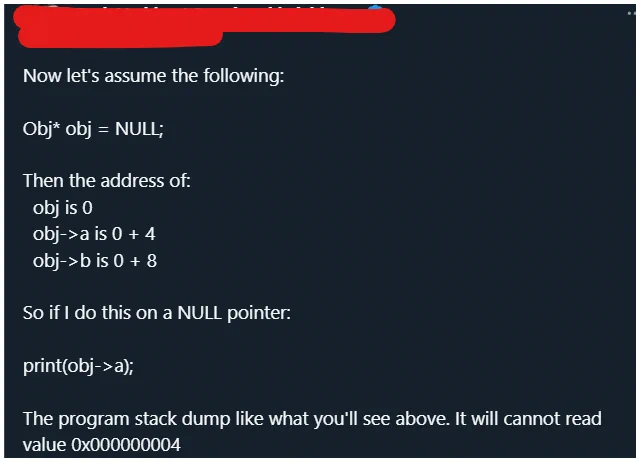This strange tweet got >25k retweets. The author sounds confident, and he uses lots of hex and jargon. There are red flags though... like what's up with the DEI stuff, and who says "stack trace dump"? Let's take a closer look... 🧵1/n
It is a plausible explanation, 0x9c is not NULL, but dereferencing near-NULL addresses can have the same root cause. He explains that the code was reading a field at offset 156 from a NULL object pointer. 3/n
Jul 20, 2024 · 8:40 PM UTC
Well, except... we can see in his screenshot that MSVC generated mov r9d, [r8]? That's really odd... I spend half my life looking at MSVC output, and I would expect to see mov r9d, [r8+0x9c], so what's up with that? 4/n
Maybe I'm wrong, let's test it in godbolt godbolt.org/z/sdz4PGxxo. Nope, the code doesn't match! The code is either more complicated, or his hypothesis is incorrect. There is a way to check, he could type `u` (unassemble) into kd and examine the surrounding code. 5/n
He didn't, but we still can! His version of the faulting module has the bytes 45 8b 08 at csagent+0xe35a1, I found that version in VT, and had a look. In fact, there *is* a NULL check (test r8, r8; jz) immediately before the dereference, so his theory is provably *wrong* 🛑 6/n
This code is reading pointers from a table in a loop, and some are invalid. Perhaps an error parsing a configuration file left some entries uninitialized, and one just happened to be 0x9c? It's just a theory, but at least mine fits the facts😆 7/n
Here is the same crash seen by Patrick, except he saw the entry 0xffff9c8e00000008a, nowhere near NULL! If this is uninitialized data, perhaps it was okay during testing and that's why CS didn't catch it 🤷♂️ 8/n
I don't do Windows but here are some (initial) details about why the CrowdStrike's CSAgent.sys crashed
Faulting inst: mov r9d, [r8]
R8: unmapped address
...taken from an array of pointers (held in RAX), index RDX (0x14 * 0x8) holds the invalid memory address
@_JohnHammond















